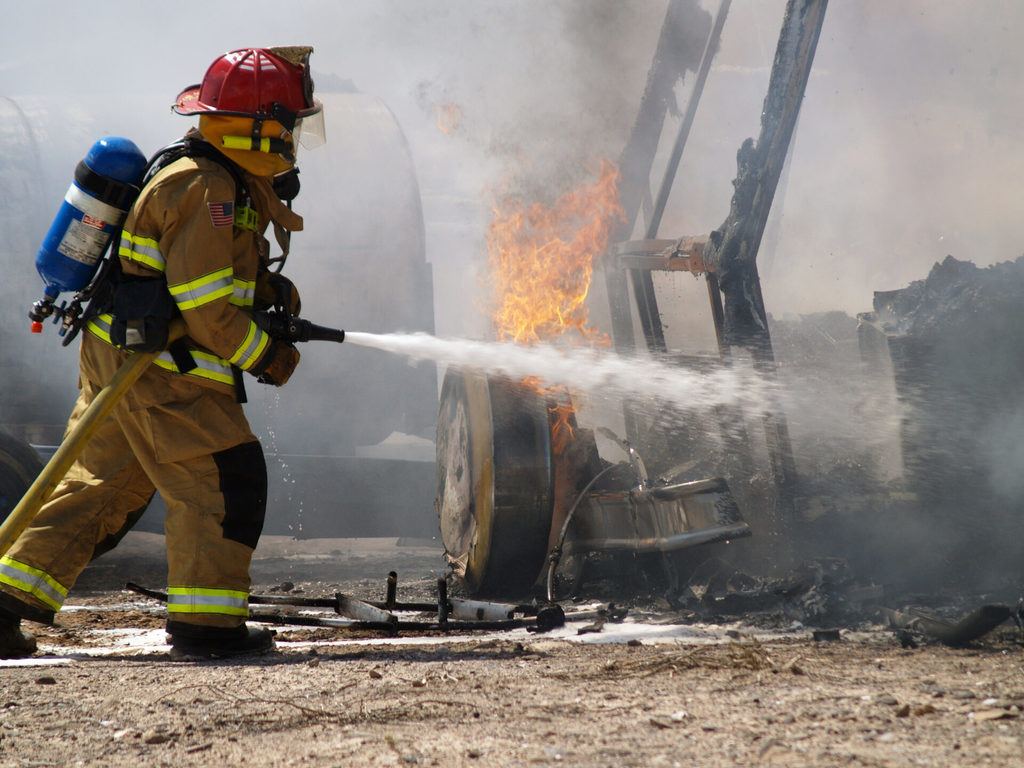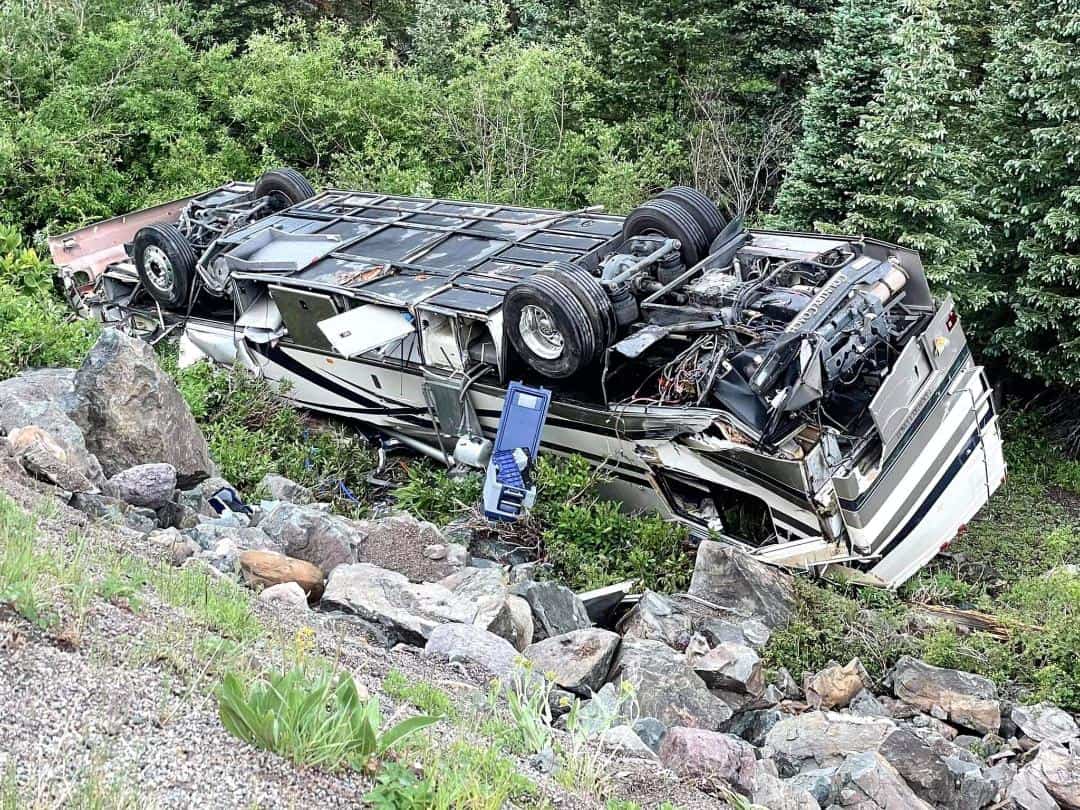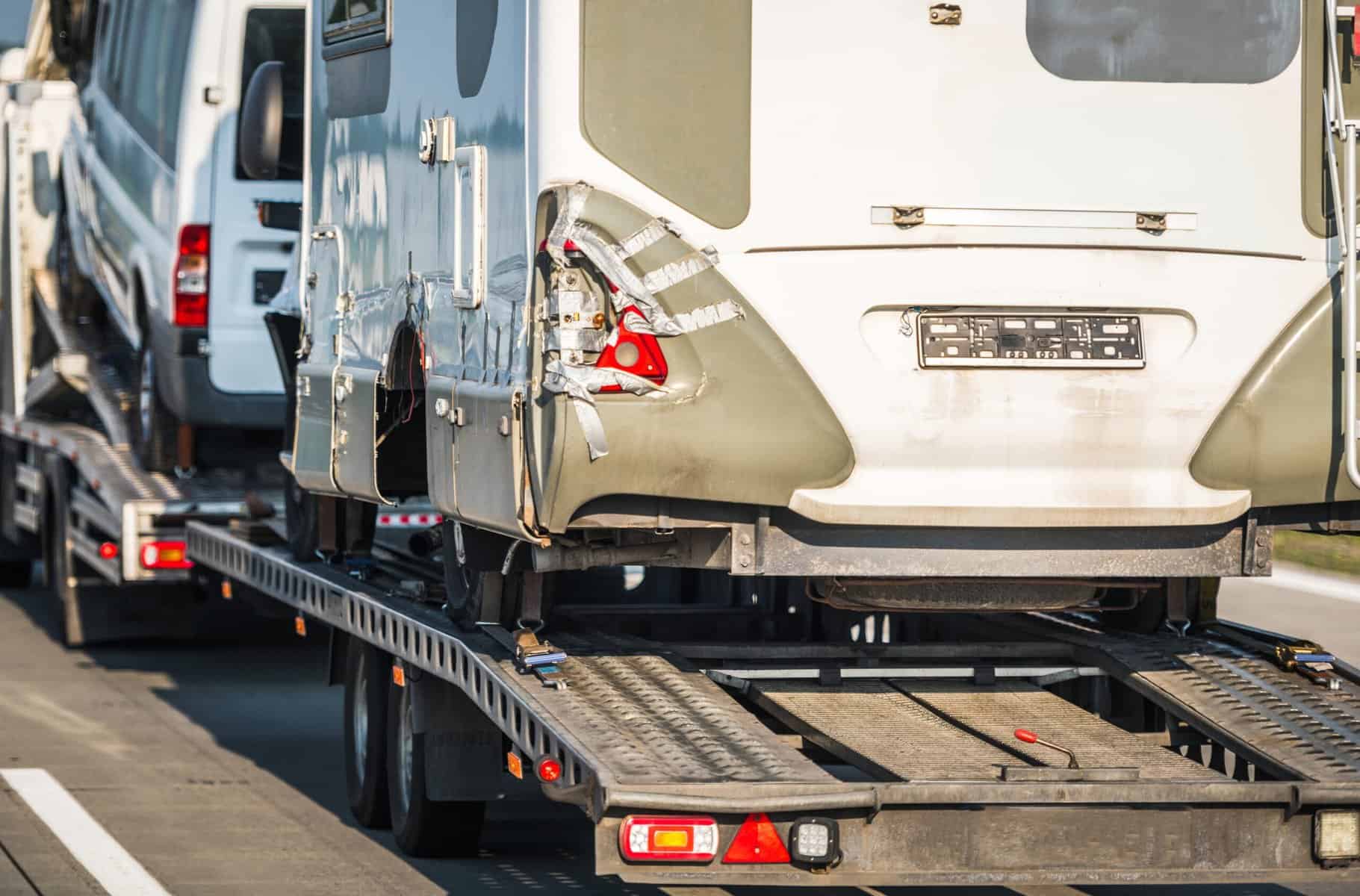Vehicle accidents and fires are not fun to think about. But these quick RV insurance tips for travelers can help you choose a good policy that covers your RV and your stuff if the unthinkable happens.
Why You Need RV Insurance
Whether you decided to buy a used RV or finance a shiny new one, you paid good money for that trailer or motorhome. The right kind of RV insurance is the best way to protect your investment if you suffer from a horrible RV accident or fire.
The good news is that once you choose the right RV insurance policy, your bank accounts and personal assets are safe. Adequate insurance protects your money if you don’t have enough funds to cover damage to another RV, or person. Nailing down the best trailer or motorhome insurance for your needs might not be cheap. But once you get it, you can enjoy peace of mind whether you’re traveling on weekends or full-time RVing.
Three Quick RV Insurance Tips for Travelers
The internet makes it easier than ever to find a good RV insurance policy. Before you do, take time to understand these RV insurance tips for travelers that can help you choose the right plan.
1. Don’t let the RV insurance plan cost determine your choice.
An endless variety of RVs are on the road. Some have engines, some do not. Some are vintage, others are brand new. Each RV make and model requires different levels of insurance protection. And every RV owner has different needs too. Consequently, RV insurance plan coverage is tailored to the vehicle and the owner. How you use the RV plays the biggest role in determining cost. If the quote you received is more expensive than you thought it would be, there’s probably a good reason why.
For example, if you only enjoy RV travel on weekends and vacations, your RV insurance plan will look slightly different than full-time RVer insurance coverage. Here’s what you can expect:
- Part-time RVer insurance costs less. Weekenders pay less for a few reasons. If you already have a place for your stuff, you won’t need the extra storage locker insurance coverage found in many full-time RV insurance plans. You can also set lower personal property coverage and lower personal liability limits on your RV insurance plan, if you have a homeowners or renters plan that offers this protection. As a bonus, you can put your policy on hiatus during winter. All of these things keep part-time RVer insurance costs down.
- Full-time RVer insurance costs more. Why? For several reasons. A full-timers insurance policy offers higher amounts of personal liability coverage. This means that if your dog bites someone in a campground, or a broken RV step causes a guest to fall and break their leg, your full-time RVer insurance policy can cover the cost of medical bills or other damages. Otherwise, you pay the bill that a homeowner’s or renters insurance plan usually pays. When you are a full-time RVer, you also have more personal property inside the RV that may require higher amounts of coverage. These factors drive up RV insurance costs. But it’s important to disclose your full-timer status to your company, or you may not have enough coverage.
Whether you are a part-time RVer or a full-time RVer, get the right type of plan for your RV travels. Don’t base your decision on cost alone. Otherwise you might be disappointed when you need to file a claim.
2. Keep your policy coverage current.
Did you make a cool RV mod, like adding a solar electric power system? If so, get that system cost factored into your RV insurance policy to ensure it’s adequately covered. This is holds true for anything you bring on board, from computers to kayaks. And if you decided to buy a Tire Pressure Monitoring System, you might get a corresponding discount on your policy since TPMS lowers the risk of tire failure. Be sure to tell your agent about whatever bells and whistles you add (or subtract) to your policy.
3. Understand the difference between a roadside assistance plan and RV insurance towing help
Many RV insurance companies offer roadside assistance by giving you towing help when you need it. Some charge extra for this coverage, some do not. But RV roadside assistance companies that specialize in this area tend to offer a wider range of services in a break-down situation. For example, RV roadside assistance plans usually cover the cost of hotel stays if you have nowhere to go. Spoiled food in the refrigerator is sometimes covered, too. You might also have coverage for the cost of replacing tires, and even breakdown help while RVing in Canada or Mexico. In other words, thoroughly investigate how much towing coverage your RV insurance plan will offer in a breakdown situation. More than likely, it lacks the kind of coverage that a roadside assistance plan offers.

Find More RV Insurance Tips
Unfortunately, the more you go RVing, the higher the risk of encountering situations that require you to use that RV insurance policy. These RV insurance tips for travelers are just the beginning of what you need to know. Do your research with more helpful insurance tips from RV LIFE or Do It Yourself RV before making a decision. The more you know, the better you’ll sleep on the open road.



